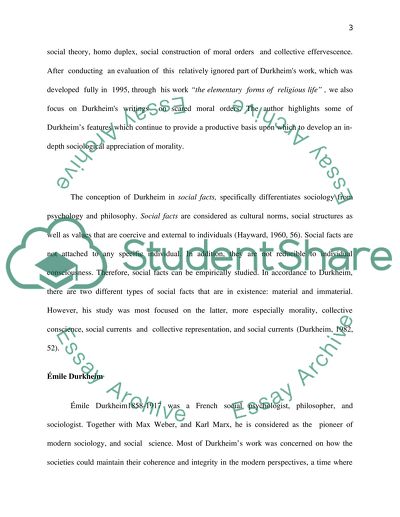Cite this document
(“Why is morality a key concern for Durkheim How does this feature in Essay”, n.d.)
Why is morality a key concern for Durkheim How does this feature in Essay. Retrieved from https://studentshare.org/sociology/1635899-why-is-morality-a-key-concern-for-durkheim-how-does-this-feature-in-his-social-theory
Why is morality a key concern for Durkheim How does this feature in Essay. Retrieved from https://studentshare.org/sociology/1635899-why-is-morality-a-key-concern-for-durkheim-how-does-this-feature-in-his-social-theory
(Why Is Morality a Key Concern for Durkheim How Does This Feature in Essay)
Why Is Morality a Key Concern for Durkheim How Does This Feature in Essay. https://studentshare.org/sociology/1635899-why-is-morality-a-key-concern-for-durkheim-how-does-this-feature-in-his-social-theory.
Why Is Morality a Key Concern for Durkheim How Does This Feature in Essay. https://studentshare.org/sociology/1635899-why-is-morality-a-key-concern-for-durkheim-how-does-this-feature-in-his-social-theory.
“Why Is Morality a Key Concern for Durkheim How Does This Feature in Essay”, n.d. https://studentshare.org/sociology/1635899-why-is-morality-a-key-concern-for-durkheim-how-does-this-feature-in-his-social-theory.


